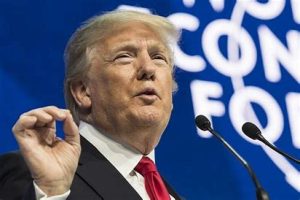In a recent court filing, former President Donald Trump, through his attorneys Steve Sadow and Jennifer Little, reiterated his call for a Georgia judge to dismiss the election interference charges lodged against him in Fulton County. The filing, submitted on Monday, contends that the charges are “categorically invalid” as they purportedly infringe on Trump’s First Amendment rights, labeling the indictment an attempt to criminalize “core political speech.”

Arguing that Trump is entitled to the same robust First Amendment protections as any American citizen, the filing asserts that the charges go beyond criminalizing conduct with a tangential impact on protected speech. Instead, they claim the indictment directly targets Trump’s essential political speech and activities. This echoes arguments previously presented in court during a December 1 hearing where Trump’s legal team asserted that the indictment violated free speech and should be dismissed.
The new filing specifically emphasizes that Trump’s actions in Georgia, including his widely-publicized phone call to Secretary of State Brad Raffensperger urging him to “find” enough votes, fall within the ambit of the First Amendment. It contends that the claim that the 2020 election was rigged and stolen is protected speech, whether made in a public address or conveyed to government officials as an act of petitioning or advocacy.
Trump’s attorneys further contend that the Fulton County indictment solely charges him for speech and advocacy actions, all of which, they assert, are shielded under the First Amendment. They argue that every charge against Trump rests on acts of political speech and advocacy at the core of the First Amendment, with no non-speech or non-advocacy conduct identified by the prosecutors.
The filing maintains that even if Trump’s statements were false, they remain protected speech under the First Amendment. It underscores that the government cannot criminalize speech on contentious social, political, and historical issues simply based on its determination of truth or falsity, particularly within the political context.
In August, Trump and 18 others pleaded not guilty to charges in a sweeping racketeering indictment brought by Fulton County’s district attorney, accusing them of attempting to overturn the results of the 2020 presidential election in Georgia. Four co-defendants have since taken plea deals in exchange for cooperation in testifying against others. Trump has consistently dismissed the investigation as politically motivated. The legal proceedings continue against this backdrop of constitutional arguments, challenging the boundaries of protected speech and political expression.
Read Also – Texas Has Seven of the Most Absurd Holiday Laws

